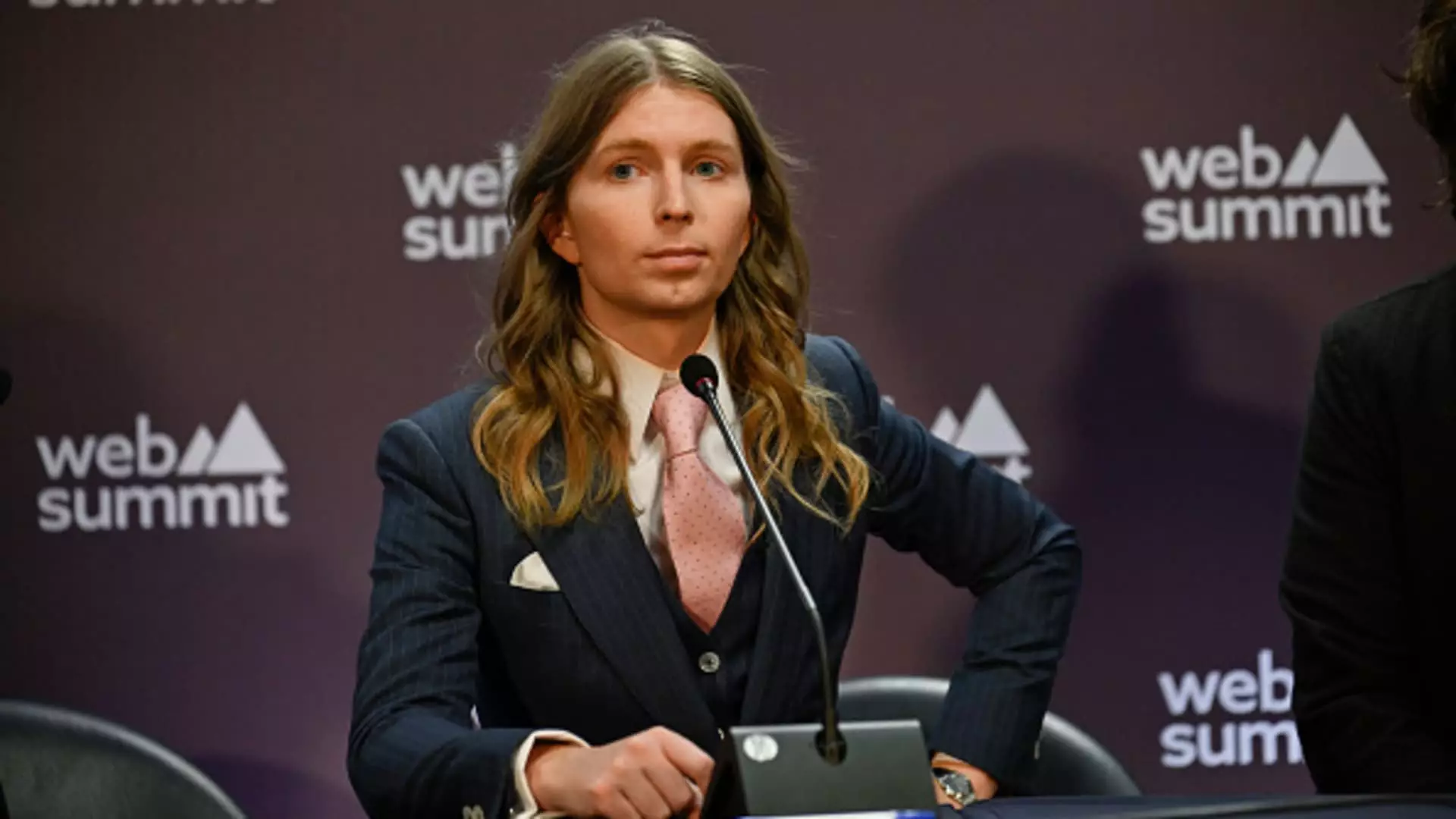In a notable appearance at the Web Summit tech conference in Lisbon, Chelsea Manning, the former U.S. Army intelligence analyst, voiced strong concerns about the state of censorship in the digital landscape. Manning’s insights come as a response to growing tensions around content moderation practices by tech companies, highlighting that censorship remains a significant threat to individuals’ online freedoms. In today’s hyper-connected world, the debate surrounding who controls online narratives and how information is disseminated has taken center stage. Manning articulated that the core issue isn’t merely the act of censoring but rather the motives behind it and the mechanisms, such as algorithms, that either amplify or suppress information.
Manning’s perspective reveals a deeper concern about the increasing monopolization of social media platforms, which she argues have conditioned society to accept algorithmically driven content as the norm. This reliance on algorithms raises critical questions about transparency and accountability as they shape public discourse. The inherent biases of these algorithms can lead to selective visibility and engagement, ultimately determining what information gets prioritized. Hence, Manning advocates for a more decentralized digital environment reminiscent of the early internet era—a principle that could mitigate centralized power dynamics and restore individual agency.
A cornerstone of Manning’s advocacy is the concept of decentralized identification. By empowering individuals to control their personal data, a decentralized internet could offer a more equitable and secure online experience. Manning opines that users should have the ability to manage their consent concerning data sharing instead of relying solely on corporations’ opaque privacy policies. This approach would not only enhance personal privacy but also foster a healthier information ecosystem where users can engage on their terms.
However, the transition to such a decentralized model is fraught with challenges. Manning recognizes the skepticism toward how tech companies could sustain profitability in this new paradigm. She posits that the solution lies in establishing a “better social contract” that clearly outlines how information is shared, accessed, and monetized. This contract would necessitate a cultural shift within tech, moving away from exploitative models toward ones that inherently respect user privacy and promote trust.
Manning’s reflections also shed light on the evolving climate for whistleblowers in the digital age. She notes the paradox of an information-rich environment that complicates the landscape for those seeking transparency. Despite an unprecedented flow of information, the challenge has shifted from uncovering secrets to navigating a deluge of misinformation and disinformation. Governments and organizations are increasingly investing in misleading narratives, making it difficult for whistleblowers to discern and validate authentic information amidst the noise.
This reality presents a dual challenge: whistleblowers must adeptly sift through the vast array of content available while also contending with the potential backlash from powerful entities intent on maintaining their narratives. Manning emphasizes that it is no longer a straightforward battle between secrecy and transparency; instead, it necessitates a nuanced understanding of truth in an era laden with conflicting information. The tools and frameworks for verifying authenticity have never been more crucial, and as such, technology plays a pivotal role in ensuring that genuine voices can be heard above the cacophony.
The conversation surrounding a decentralized internet, as elucidated by Manning, calls for a collective effort—a collaboration among tech developers, policymakers, and everyday users. There is a pressing need to rethink governance structures in the digital realm, ensuring they are inclusive and representative of diverse perspectives. As we contemplate the future of online spaces, the emphasis must be on creating communities that prioritize dialogue, foster critical thinking, and embrace ethical information-sharing practices.
Chelsea Manning’s insights challenge us to confront the uncomfortable realities of censorship and data control in our digital lives. By advocating for decentralization and conscious governance, she emphasizes the urgency of reclaiming agency over personal information and fostering a more equitable internet. As we navigate this complex terrain, the collective push for ethical frameworks and responsible technology will be critical in shaping a digital future that serves the rights and needs of all individuals.


Leave a Reply